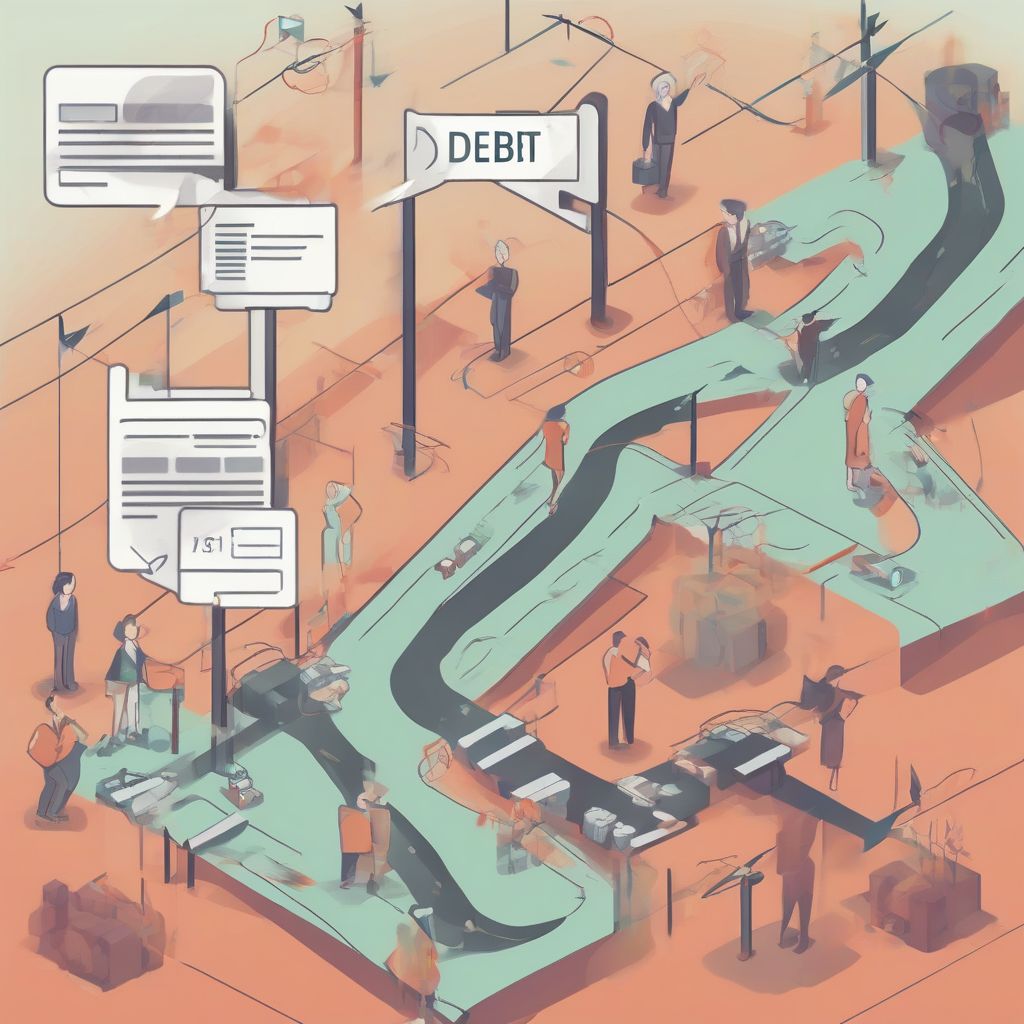Imagine this: you’re drowning in a sea of debt, struggling to keep your head above water. The monthly payments feel like an anchor, dragging you down further. You dream of a life free from the crushing weight of debt, but the way out seems murky and uncertain.
If this resonates with you, you’re not alone. Millions of people face similar struggles, but there is hope. Debt settlement is one option that could help you regain control of your finances and chart a course toward a brighter future.
What is Debt Settlement?
Debt settlement is a process where you negotiate with your creditors to pay a lump sum that’s less than the full amount you owe, in exchange for having the debt considered settled. Essentially, you’re striking a deal with your creditors to resolve your debt for a reduced amount.
How Does Debt Settlement Work?
While the process may vary slightly depending on the debt settlement company you choose (if any) and your specific circumstances, the general steps involved in debt settlement are as follows:
1. Assessment: The first step is to assess your financial situation and determine if debt settlement is the right option for you. This typically involves evaluating your income, expenses, assets, and the amount of debt you have.
2. Negotiation: If debt settlement seems like a viable path, you (or your debt settlement company) will contact your creditors to negotiate a settlement agreement. This involves presenting your creditors with a proposal outlining the reduced amount you’re able to pay.
3. Settlement Agreement: If your creditors agree to your proposed settlement, they will draw up a formal agreement outlining the terms of the settlement. This document is legally binding, so it’s crucial to read it carefully before signing.
4. Payment: Once you sign the settlement agreement, you’ll need to make the agreed-upon lump sum payment to your creditor. This payment might come from your savings, a loan, or funds provided by a debt settlement company.
5. Debt Resolution: After your creditor receives the agreed-upon payment, they will consider the debt settled. This means you are no longer obligated to pay the remaining balance on the debt.
 debt settlement process illustration
debt settlement process illustration
When is Debt Settlement a Good Option?
Debt settlement is not a one-size-fits-all solution. It’s essential to carefully consider your individual circumstances and the potential pros and cons before pursuing this option.
Debt settlement might be worth considering if you:
- Are struggling to make minimum payments on your debts: If you’re barely scraping by and can’t afford your minimum payments, debt settlement could help you avoid falling further behind.
- Have significant unsecured debt: Debt settlement is generally most effective with unsecured debts, such as credit card debt, medical bills, and personal loans.
- Have exhausted other debt relief options: If you’ve explored options like debt consolidation or a debt management plan and haven’t found a workable solution, debt settlement might be a viable alternative.
Potential Risks and Drawbacks of Debt Settlement
While debt settlement can offer a way out of debt, it’s crucial to be aware of the potential drawbacks:
- Credit Score Impact: Debt settlement can significantly damage your credit score. This can make it difficult to obtain loans, rent an apartment, or even secure certain jobs in the future.
- Tax Implications: The IRS considers forgiven debt as taxable income. This means you might be hit with a hefty tax bill if a significant amount of your debt is settled.
- No Guarantee of Success: There’s no guarantee that your creditors will agree to settle your debt. They might reject your proposal and continue pursuing the full amount owed.
Choosing the Right Path: Seeking Professional Guidance
Navigating the complexities of debt settlement can be challenging. Consulting with a reputable credit counseling agency or financial advisor can provide valuable insights and guidance. They can help you:
- Assess your financial situation: A professional can objectively evaluate your finances to determine if debt settlement is the right course of action for you.
- Explore alternative options: If debt settlement isn’t suitable, they can help you explore other debt relief options, such as debt consolidation or bankruptcy.
- Negotiate with creditors: Experienced credit counselors have established relationships with creditors and can often negotiate favorable settlement terms on your behalf.
Conclusion: Weighing the Options for Financial Freedom
Debt settlement can offer a lifeline for individuals drowning in debt, but it’s not a decision to be taken lightly. By understanding how debt settlement works, weighing the potential benefits and drawbacks, and seeking expert guidance, you can make an informed choice that aligns with your financial goals and sets you on the path toward a brighter, debt-free future.
If you’re struggling with debt, remember, you’re not alone. Reach out to a trusted financial professional today to explore your options and take the first step toward financial freedom.
[amazon bestseller=”debt settlement”]
